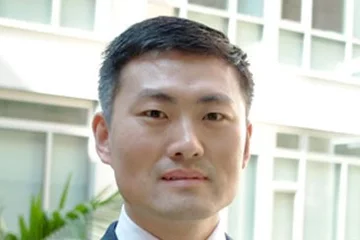Insomnia may speed up the aging process in older adults, according to a UCLA study that found a link between inadequate and disturbed sleep and a cellular marker of aging.
The study, led by UCLA's Judith Carroll, is the first to find an association between insomnia in older adults and the length of telomeres, bits of DNA found in cells that get shorter as cells age.
Specifically, insomnia was associated with a shorter telomere length in men and women over 70 years old. Among these adults, those with diagnosed insomnia had significantly shorter telomeres than good sleepers of the same age.
Dr. Carroll found insomnia had no impact on telomere length in participants under age 70—an indication that insomnia’s toll increases over time.
The findings suggest that older adults who have trouble falling or staying asleep might be more vulnerable to age-related illnesses, such as cardiovascular disease, dementia, diabetes and stroke.
Telomeres are genetic “caps” found at the end of chromosomes to protect chromosomes from damage; think of aglets at the end of shoelaces. As cells divide over a lifetime, telomeres get shorter. Although it is normal for telomeres to become shorter as an individual ages, a faster decline in telomere length is associated with greater vulnerability to disease and early death.
Insomnia is characterized by unhealthy or abnormal sleeping habits such as having issues falling or staying asleep, waking up earlier than expected, and experiencing sleep that isn’t refreshing. About 6% to 10% of the population has insomnia; however, approximately 50% of adults older than 65 report having insomnia symptoms, and about 10% to 25% experiencing clinical insomnia.
Although inadequate sleep has been associated with increased risk for disease and early death, scientists do not yet understand the biological process through which insomnia impacts health.
Dr. Carroll and her team hypothesized that insomnia accelerated the process of cellular aging. They further hypothesized that the impact of insomnia on cellular aging would be greatest in the oldest adults.
Investigators recruited male and female participants ages 60 to 88 through a telephone survey of older adults living near the UCLA campus. Eligible participants were invited to come into the lab where they had a medical interview and additional screening clinical laboratory work. Subjects provided a blood sample which was used to collect their DNA to measure the telomere lengths.
The study was published in the journal SLEEP in March 2016.
Although the study found a link between insomnia and telomere length, it did not prove that insomnia causes cells to age faster, Dr. Carroll, an assistant professor of psychiatry at the UCLA Semel Institute for Neuroscience and Human Behavior and the Cousins Center for Psychoneuroimmunology, acknowledged.
“There is also the possibility that the biological aging process increases the risk of developing insomnia symptoms, which we know occurs more frequently in later life,” Dr. Carroll said. “Older adults complain quite a bit about insomnia symptoms. About half of them have some level of insomnia symptoms.”
Insomnia symptoms are also related to elevated levels of inflammation. Increased inflammation is suspected to be part of a mechanism that drives faster cellular aging along with the shortening of telomeres.
One source of inflammation is from aging cells. As more and more of our cells enter a senescent state, inflammation in the body is thought to rise. Cells enter this state over time as they replicate and receive stress and damage.
In the senescent state, cells change in their function and secrete biological molecules that cause inflammation, which can cause complications and influence the aging process.
Although insomnia has many harmful effects on the body, these effects can be lessened by getting better sleep. Dr. Carroll said that the National Sleep Foundation website has useful advice and tips to help older adults get a good night’s sleep. “If some of the basic recommendations don’t seem to help, then you should talk to your doctor and they can guide you to the right resource,” she said.
Dr. Carroll is currently working with a team of researchers on an intervention funded by the National Institute on Aging that treats individuals with insomnia using cognitive-behavioral therapy. Conducted in a group setting for four months, the intervention will help poor sleepers establish proper bed times and encourage them to use their beds only for sleep. Cognitive treatments will assist with relaxation so study subjects can sleep easier. Dr. Carroll plans to measure the impact of the intervention on telomere length and other markers of biological aging.
“We hope that this research is motivational for any person that suffers with insomnia to go and get treatment. By understanding more about the impact the insomnia is having on their health and the aging process, they may recognize the importance of good sleep. Also of value is to know whether improving sleep could help reverse these effects,” Dr. Carroll said.
For more information:
Read the study in the journal SLEEP: Insomnia and Telomere Length in Older Adults
Amjad Murdos is a third-year UCLA undergraduate from Rochester, Minn. He is studying psychobiology.
Image caption:
Image source:




